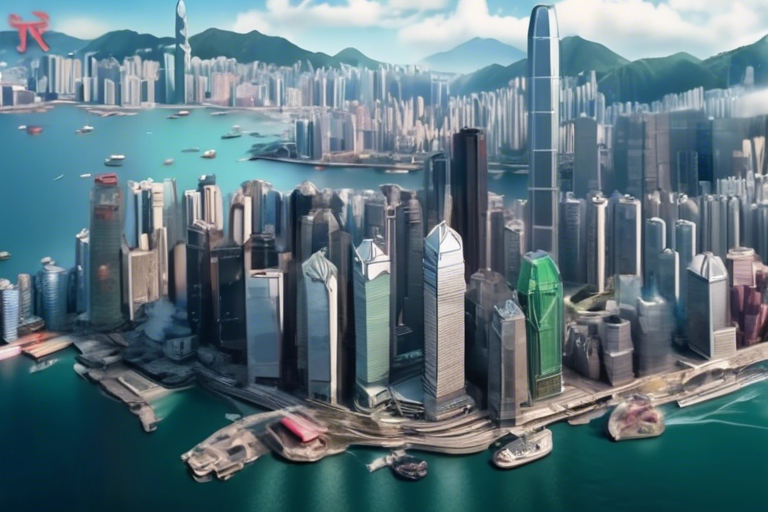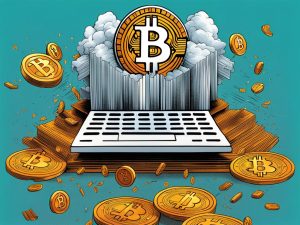China’s Impact on Hong Kong: A Transformation Unfolds 🇭🇰
In the aftermath of Beijing’s implementation of a national security law in Hong Kong, the city’s identity as a financial hub remains in flux. The repercussions of this move continue to reverberate, reshaping the landscape of this dynamic metropolis. Let’s delve into how China’s influence is molding the future of Hong Kong and what it means for its residents.
Reflections on Hong Kong’s Past and Present 🌆
Over the years, Hong Kong has undergone significant changes, evolving from a British-controlled territory to a global trade center under Chinese governance. The transition from British rule to Chinese authority in 1997 marked a pivotal moment in the city’s history. With the promise of “one country, two systems,” Hong Kong was assured a level of autonomy unlike anywhere else in mainland China. This unique arrangement guaranteed certain freedoms that set Hong Kong apart from its communist neighbor.
- 1841: Hong Kong comes under British control after the First Opium War.
- 1997: Hong Kong handed back to China under the “one country, two systems” framework.
- Autonomy and political freedom promised to Hong Kong for 50 years post-handover.
Despite initial concerns and anxieties surrounding the Handover, Hong Kong thrived in the years following the transition. It maintained its status as a key financial center in the region and retained a vibrant political atmosphere where protests and dissent were permitted.
The Shift Towards Security: A New Chapter Emerges 🚨
The turning point came in 2019 when mass protests erupted in response to an extradition law proposal that sparked fears of greater Chinese influence over Hong Kong’s legal system. These demonstrations quickly evolved into a broader movement challenging Beijing’s authority over the city. As tensions escalated, Beijing intervened with the imposition of a national security law in 2020, effectively curtailing dissent and undermining Hong Kong’s autonomy.
- 2019: Protests erupt over extradition law, leading to broader anti-China sentiments.
- 2020: National Security Law enacted to quell dissent and opposition.
- Crackdown on pro-democracy activists and silencing of political voices.
The implementation of this law marked a significant shift in Hong Kong’s political landscape, with repercussions that continue to be felt across the city. It has led to the arrest and imprisonment of numerous activists, politicians, and dissenters, signaling a new era of control and surveillance in Hong Kong.
Challenges and Responses: Navigating a Changing Environment 🔄
As Hong Kong grapples with increased government scrutiny and restrictions on political expression, its residents are faced with a dilemma. Many have chosen to leave the city in search of greater freedoms and opportunities elsewhere, while some have opted to adapt to the evolving circumstances by embracing closer ties with mainland China.
- Migration trends: Thousands of Hong Kongers relocate to the UK, Australia, and Taiwan.
- Chinese integration: Some residents embrace cross-border lifestyles and economic opportunities.
- Divergent responses: A spectrum of reactions to China’s influence, from resistance to acceptance.
Amidst these shifts, the fundamental question of identity looms large for Hong Kongers. The evolving political landscape and Beijing’s tightening grip on the city raise existential questions about what it means to be a Hong Konger in today’s environment.
Looking Ahead: Traversing Uncertain Terrain 🌐
As Hong Kong grapples with the ramifications of China’s growing influence, the future remains uncertain for its residents. The delicate balance between autonomy and control, freedom and restrictions, continues to shape the city’s trajectory. How Hong Kong navigates these challenges will determine its identity and place in the global arena.
Hot Take: Navigating the New Normal in Hong Kong 🌏
As Hong Kong undergoes a profound transformation under China’s influence, the city’s residents face a complex and evolving landscape. The interplay between political control, economic opportunities, and individual freedoms presents a delicate balancing act for Hong Kongers. How they reconcile these competing forces will define the city’s future and its inhabitants’ sense of identity. In a changing world, Hong Kong stands at a crossroads, shaping its destiny amidst shifting tides of power and autonomy.





 By
By
 By
By
 By
By

 By
By